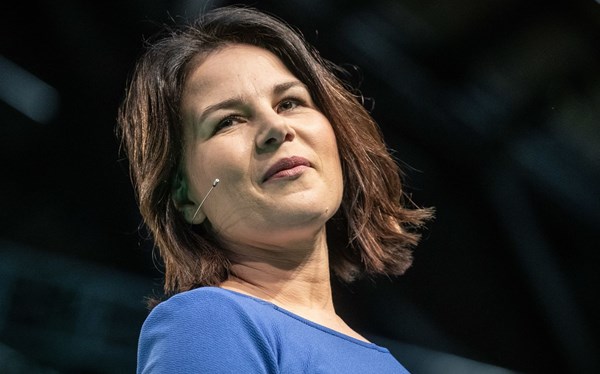German Foreign Minister backs long-range missile supplies to Ukraine despite Chancellor's opposition
In an interview on ARD’s „Bericht aus Berlin“ on Sunday, September 29, German Foreign Minister Annalena Baerbock has voiced her support for supplying long-range missiles to Ukraine. Despite a differing opinion from German Chancellor Olaf Scholz, Baerbock, a member of the Green Party, emphasized the strategic importance of these weapons, particularly in breaching minefields in eastern Ukraine.
"I have constantly stated that these (long-range missiles) play a vital role, especially in overcoming the mine belts in eastern Ukraine," Baerbock highlighted. When questioned about further arms supplies to Kyiv from Germany, Baerbock reiterated her stance, noting the contrasting position of Chancellor Scholz. "In a democratic coalition, if partners cannot agree on a specific point, we cannot support it (delivering long-range weapons to Ukraine)," Baerbock pointed out. "In such cases, it’s up to the Americans, the British, and the French."
Ukrainian President Volodymyr Zelensky has been pressing Western nations to allow Ukraine to use their supplied weaponry against targets inside Russia, situated hundreds of kilometers from the Ukrainian border, reports Reuters. For this to happen, the U.S. would need to approve the use of ATACMS missiles, and the UK would need to allow Storm Shadow cruise missiles. German-Swedish Taurus missiles, theoretically capable of reaching Moscow, have been consistently withheld by Scholz.
In the recent state elections in Saxony, Thuringia, and Brandenburg this September, the anti-Ukraine aid parties Alternative for Germany (AfD) and Sarah Wagenknecht’s Common Sense and Justice (SSG) saw significant success. Contrastingly, the Green Party, represented by Baerbock, saw poor results in all three states – failing to enter the parliament in Thuringia with 3.2% of the vote, barely surpassing the 5% threshold in Saxony, and receiving 4.1% in Brandenburg.
Baerbock reiterated her position on ongoing military assistance to Ukraine during the “Bericht aus Berlin” program on September 29, stressing its importance in light of the potential return of former U.S. President Donald Trump. "What could always be relied upon with Trump was that the next day's events were absolutely unpredictable," Baerbock remarked.
On September 27, Donald Trump met with Ukrainian President Volodymyr Zelensky in New York, during which Zelensky implored the Republican to continue supporting Ukraine in its defense against Russian aggression should he win the upcoming U.S. presidential election in November. Trump reiterated his oft-stated belief that he could end the war in Ukraine before his potential inauguration in January 2025, reports Frankfurter Rundschau.
Previously, Trump had criticized Zelensky for not agreeing to a "deal" with Moscow to end the war, asserting, "Any deal, even a bad deal, would be better than what we have now,” during a recent campaign rally in North Carolina.
